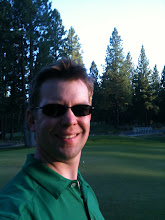Be Not Mere Shadows and Echoes
Nevertheless, because he made us with the highest creaturely purpose in mind - to enjoy and display the Creator's glory - we may have a very substantial life that lasts forever. This is why we were made ("All things were created by him and for him," Colossians 1:16). This is why our sexuality was redeemed ("Shun sexual immorality. . . . You are not your own; you were bought with a price. So glorify God in your body," 1 Corinthians 18-20). This is why we eat and drink ("So whether you eat or drink or whatever you do, do all to the glory of God," 1 Corinthians 10:31). This is why we pray ("Whatever you ask the Father in my name I will do it that the Father may be glorified in the Son," John 14:13). This is why we do all good deeds ("Let your light so shine before men that they may see your good works and give glory to your Father who is in heaven," Matthew 5:16).
That is why we exist - to display the glory of God. Human life is all about God. That is the meaning of being human. It is our created nature to make much of God. It is our glory to worship the glory of God. When we fulfill this reason for being, we have substance. There is weight and significance in our existence. Knowing, enjoying and (thus) displaying the glory of God is a sharing in the glory of God. Not that we become God. But something of his greatness and beauty is on us as we realize this purpose for our being - to image forth his excellence. This is our substance.
Not to fulfill this purpose for human existence is to be a mere shadow of the substance we were created to have. Not to display God's worth by enjoying him above all things is to be a mere echo of the music we were created to make. It is to be a mere residue of the impact we were created to have.
This is a great tragedy. Humans are not made to be mere shadows and echoes and residues. We were made to have God-like substance and make God-like music and have God-like impact. That is what it means to be created in the image of God (Genesis 1:27). But when humans forsake their Maker and love other things more, they become like the things they love - small, insignificant, weightless, inconsequential, and God-diminishing.
Listen to the way the Psalmist puts it: "The idols of the nations are but silver and gold, the work of man's hands. They have mouths, but they do not speak; they have eyes, but they do not see; they have ears, but they do not hear, nor is there any breath at all in their mouths. Those who make them will be like them, Yes, everyone who trusts in them" (Psalm 135:15-18).
Think and tremble. You become like the manmade things that you trust: can't speak; can't see; can't hear. This is a shadow existence. It is an echo and residue of what you were meant to be. It is an empty mime on the stage of history with much movement and no meaning.
Dear reader, be not shadows and echoes and residue. Break free from the epidemic of the manward spirit of our age. Set your face like flint to see and know and enjoy and live in the light of the Lord. "Come, house of Jacob, and let us walk in the light of the LORD" (Isaiah 2:5). In his light you will see him and all things as they truly are. You will wake up from the slumbers of shadow-land existence. You will crave and find substance. You will make God-like music with your life. Death will but dispatch you to paradise. And what you leave behind will not be a residue, but a tribute written in heaven to the triumphant grace of God.
John Piper-Pierced by the Word-pgs. 26-28 (MS Reader version)












 <
/a>
<
/a>






